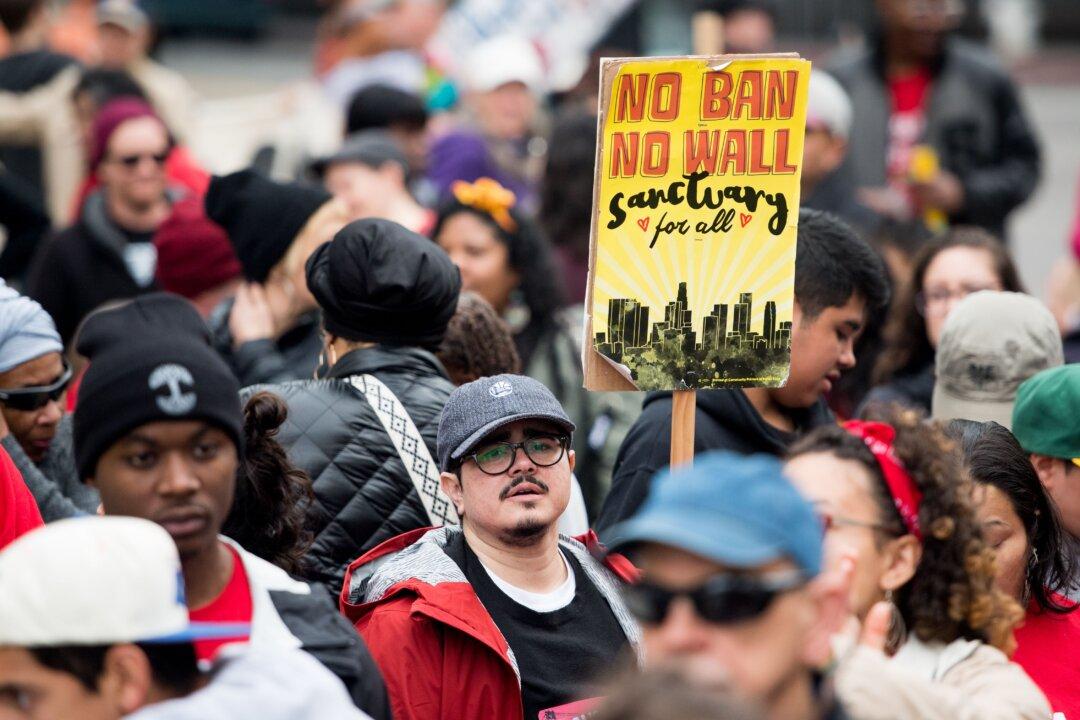A three-judge panel of the 9th Circuit Court of Appeals unanimously upheld the better part of three so-called sanctuary laws interfering with U.S. Immigration and Customs Enforcement (ICE) efforts to uphold federal immigration laws in the state of California.
The Golden State is home to more than 2 million illegal aliens.





